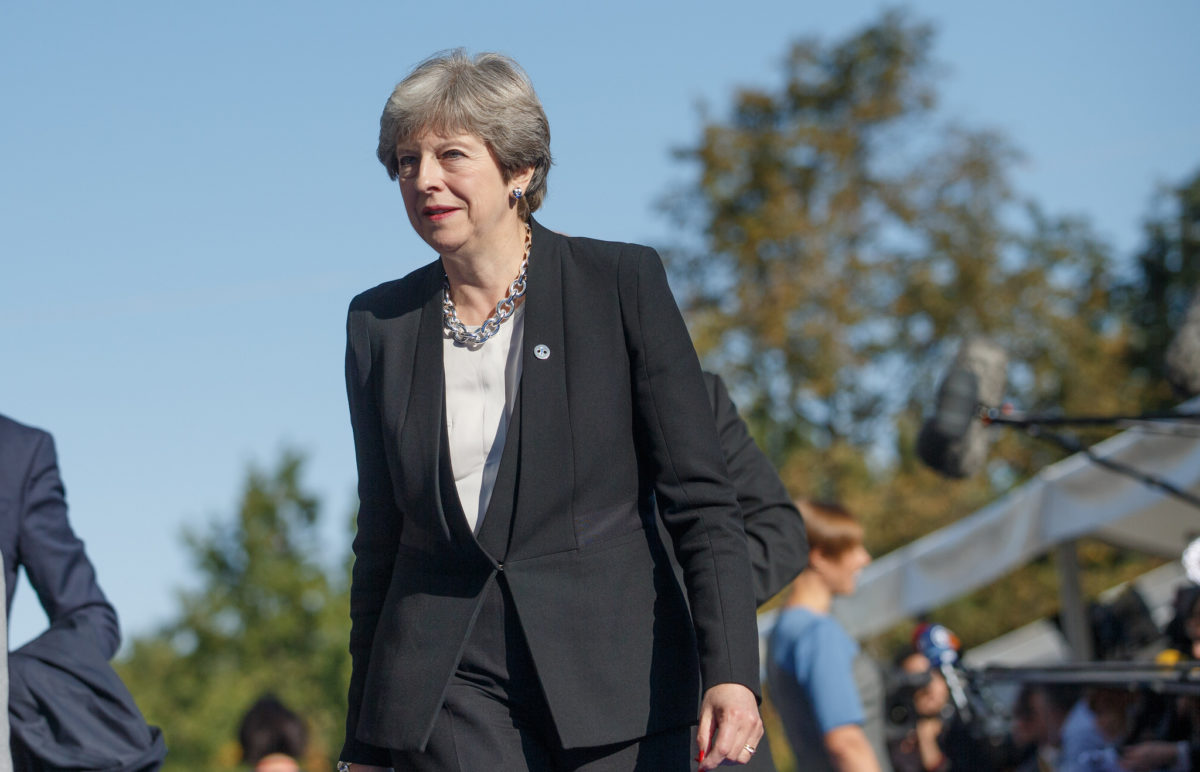The reaction to the U.K. government’s ambitious new plan to slash carbon emissions over the next three decades was swift but the predictability of the market’s response in no way blunted its underlying message.
Bruised by her failure to deliver Brexit, beleaguered prime minister Theresa May has garnered accolades from the domestic solar industry for her decision to establish a new 2050 net zero carbon target as she hobbles to the exit.
But industry representatives tempered their praise by urging the government to articulate a clear path forward and explicitly criticized the decision to ignore a recommendation against buying carbon credits from developing nations to help reach the milestone.
A little less conversation, a little more action
“Enshrining net zero greenhouse gas emissions by 2050 into law is a vital step in tackling the climate emergency but long term targets are meaningless without action,” said Chris Hewett, chief executive of U.K. industry body the Solar Trade Association (STA). “In the case of solar and energy storage, the government must move quickly to remove barriers that have needlessly slowed progress.”
This week, the prime minister announced plans to table a statutory instrument that would amend the 2008 Climate Change Act. The legislation, which May is pushing in response to recommendations contained in a recent report by its Committee on Climate Change (CCC), would require the U.K. to reach net zero emissions by 2050. That would raise the current legislative requirement to slash greenhouse gas emissions by 80% from 1990 levels and the heightened ambition would make the U.K. the first G7 nation to formally establish a net zero carbon target.
However, the STA balanced praise for the plan by demanding the government spell out how it intends to reach its target. Noting the government continues to subsidize fossil fuels while failing to provide a “route to market” for renewables, the organization challenged May to quickly establish a more “level playing field” for cleaner forms of electricity generation – in part by eliminating subsidies and tax breaks for fossil fuels and reversing proposals to impose a 20% VAT rate on some solar home systems.
Critical role for energy storage
“A 100% renewable energy system, including powering heat and transport, is entirely possible but only with the integration of energy storage,” Hewett said. “The sector is yet another example of the tremendous potential economic opportunities in clean energy if the government gets pathways to commercialization and mass market deployment right.”
The STA, which expects 4-7 GW of unsubsidized solar generation capacity to be installed in the U.K. in the next four years, claims solar and wind are now the cheapest forms of power generation in the country. The organization also noted the important role PV will play in reaching the 2050 emissions target.
“Solar can not only provide clean electricity but that low cost power can also be used to produce hydrogen and green ammonia, both of which could contribute greatly to the decarbonization of our homes, transport and shipping sectors,” Hewett argued. “Solar has been key to driving innovation in battery storage and electric vehicles and it can be scaled to power one home or an entire city. The popularity, affordability and accessibility of solar means it can play a major role now in delivering ‘net zero’.”
Among its recommendations, the CCC urged politicians to bring the nation’s electric vehicle targets forward to 2035. The committee’s report also called for a greater focus on biodiversity and carbon capture technology, in addition to a quadrupling of renewables deployment by 2050.
‘Flawed’ approach to ‘climate chaos’
Frans van den Heuvel, CEO of U.K.-based PV developer Solarcentury, hailed the government’s plan to enshrine the new 2050 target in law as an important step in addressing global climate change while echoing the STA in urging the government to explain how it will achieve its goals. Van den Heuvel also came out swinging against suggestions the U.K. will have to buy carbon credits from developing countries to hit its 2050 target, in defiance of a CCC recommendation against such action.
“There is absolutely no need to turn to other countries for carbon credits,” van den Heuvel said. “This is a fundamentally flawed approach and missed opportunity for economic growth.”
The Solarcentury CEO also criticized the U.K. government for “vastly” underestimating the potential of solar.
“It is time to get serious on renewable energy if the country is to combat climate chaos and deliver on the net zero targets,” he said. “Solar has a key role to play here and is ready to be deployed at speed and significant scale.”
This content is protected by copyright and may not be reused. If you want to cooperate with us and would like to reuse some of our content, please contact: editors@pv-magazine.com.



2 comments
By submitting this form you agree to pv magazine using your data for the purposes of publishing your comment.
Your personal data will only be disclosed or otherwise transmitted to third parties for the purposes of spam filtering or if this is necessary for technical maintenance of the website. Any other transfer to third parties will not take place unless this is justified on the basis of applicable data protection regulations or if pv magazine is legally obliged to do so.
You may revoke this consent at any time with effect for the future, in which case your personal data will be deleted immediately. Otherwise, your data will be deleted if pv magazine has processed your request or the purpose of data storage is fulfilled.
Further information on data privacy can be found in our Data Protection Policy.